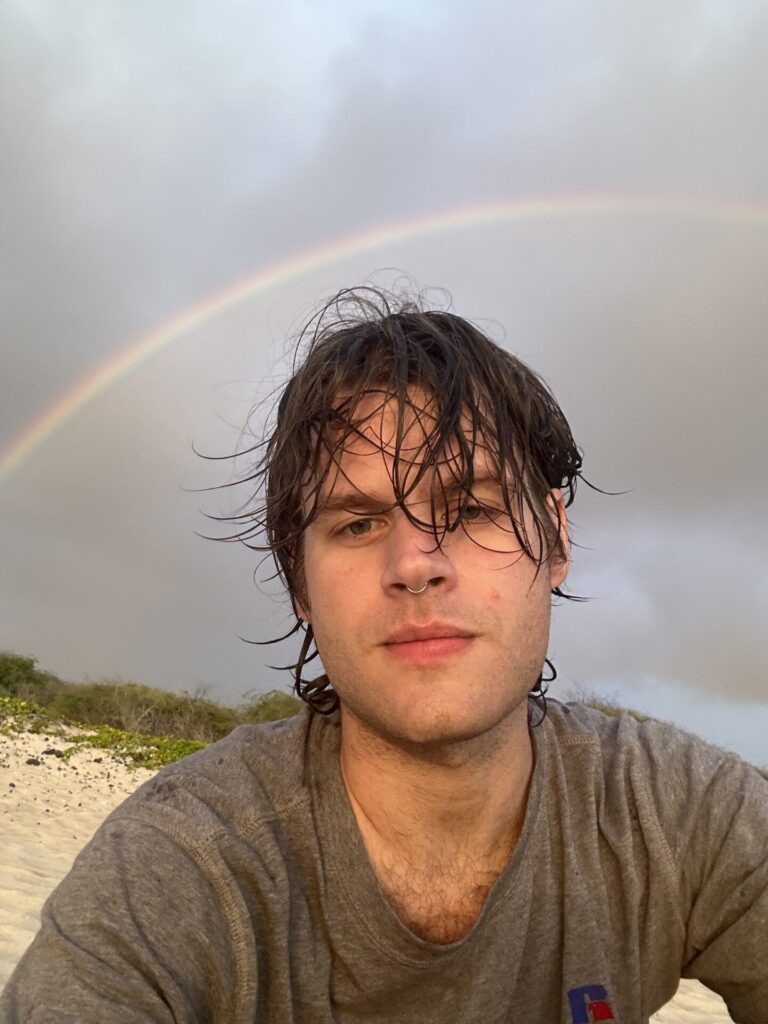WAREHOUSE TRACKSは、世界の様々な人々とワクワクするものを生み出す状況や環境を築くことを目標に掲げています。
これは、そんなコミュニティの輪を作り、広げ、何かを始めてみたい人たちに、実際にそれを始めるきっかけやモチベーションを共有することを目的とした連載です。
第三回目のゲストはCollin Davis(コリン・デイヴィス)です。
(エンジニア/プロデューサー/ミュージシャン)
At WAREHOUSE TRACKS, we seek to foster an environment where individuals from diverse backgrounds across the globe can come together to create something truly exciting.
This series of articles is aimed to inspire and expand this community, offering both motivation and the opportunity for those wanting to start something of their own to take the first step.
Our third guest is Collin Davis.
(Engineer/Producer/Musician)
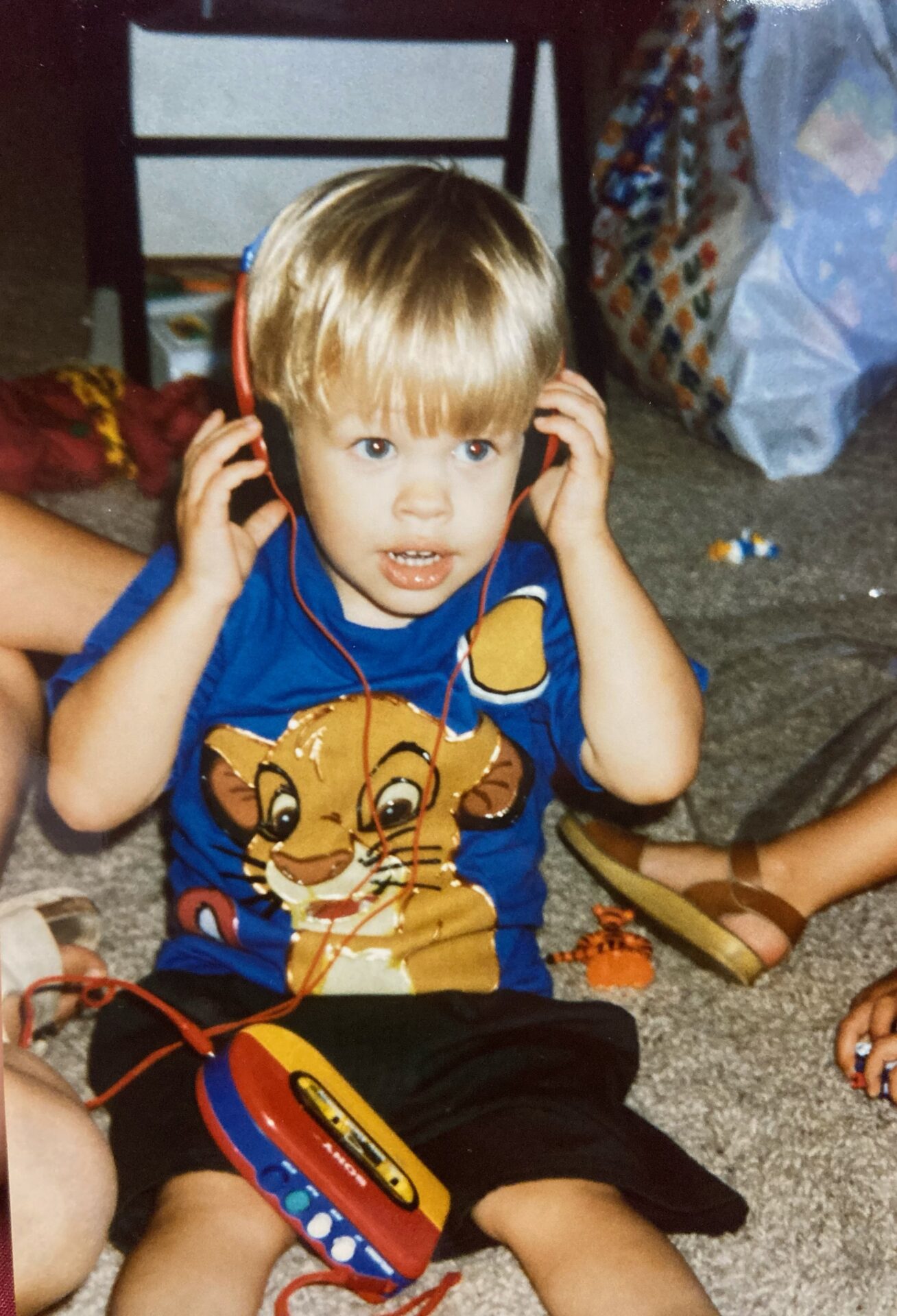
小さい頃、スポーツも勉強も苦手で、両親の期待に応えられないことに苦しんでいた僕は、よく家の暖房のまえに座って鼻歌を歌っていた。それは、家族の前では決して行わない、家族の興味のない世界に浸ることのできる唯一の時間だった。
クリエイティブな側面が芽生えたのは、スポーツ好きでアートに興味を持たない両親から受けた副作用てきな影響だった。
音楽を聴かないくせに、音楽教育が何かの役に立つと思っていた母親から、ある日突然、ピアノか合唱の習い事を始めるよう迫られた。それで、小学生のときに地域の合唱団に加入して、音階や歌い方を学び、その成果をクリスマスなどの発表会で披露するようになった。
普通科の学校に馴染めなかったことから、合唱を専門とした小規模な学校に転入すると、合唱活動が生活の中心になっていった。音楽的な素養を身に付けながら、世界中をツアーで回るようになって、想像を超える体験の連続だった。でもいまあの当時を振り返って、特に感謝していることは、何かにフォーカスする環境が世の中にあることを知れたことと、社会に馴染まなくちゃいけないプレッシャーから解放されたことだったと思う。
As a child, I struggled with both academics and athletics, constantly feeling as though I fell short of their expectations. I would often sit alone by the heater wrapped under a blanket, humming melodies —one of the few times I could fully immerse myself in my own world. It was a private escape, something I never dared to share with my family, knowing they had little interest in it.
I think my creativity emerged as an unintended response to my parents’ lack of interest in art. They both worked in public service and were far more passionate about sports than creative expression.
Then one day, my mother, who rarely listened to music but decided a musical education would benefit me, encouraged me to take up piano or choral lessons. I had no idea at the time that this simple suggestion would become the catalyst for my musical career.
I joined a local choral group, where I learned scales, practiced singing, and got to show off what I’d learned at Christmas concerts and other recitals. Eventually, I switched to a small school that focused on choral music because I just didn’t fit in at my regular school. That decision led me to tour all over the world as part of the school choir, visiting Brazil, China, South Africa, Argentina, Denmark, and a bunch of cities across the U.S. As a kid, it felt pretty surreal.
Looking back, going to a choral school wasn’t just about gaining a music foundation or the unexpected world tour. It gave me a space where I could really focus on something I loved without feeling the pressure to fit in—and that meant just as much as the music itself.
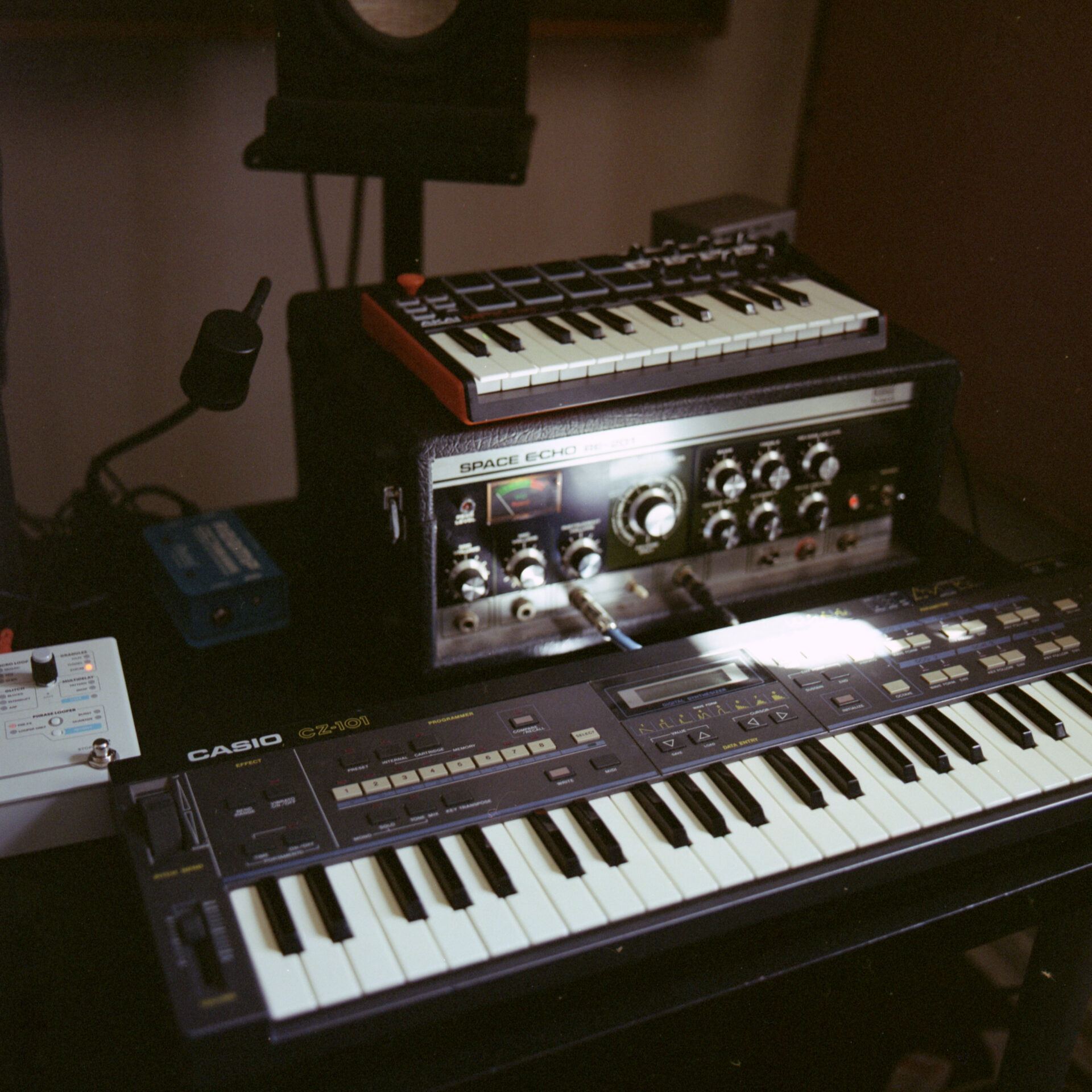
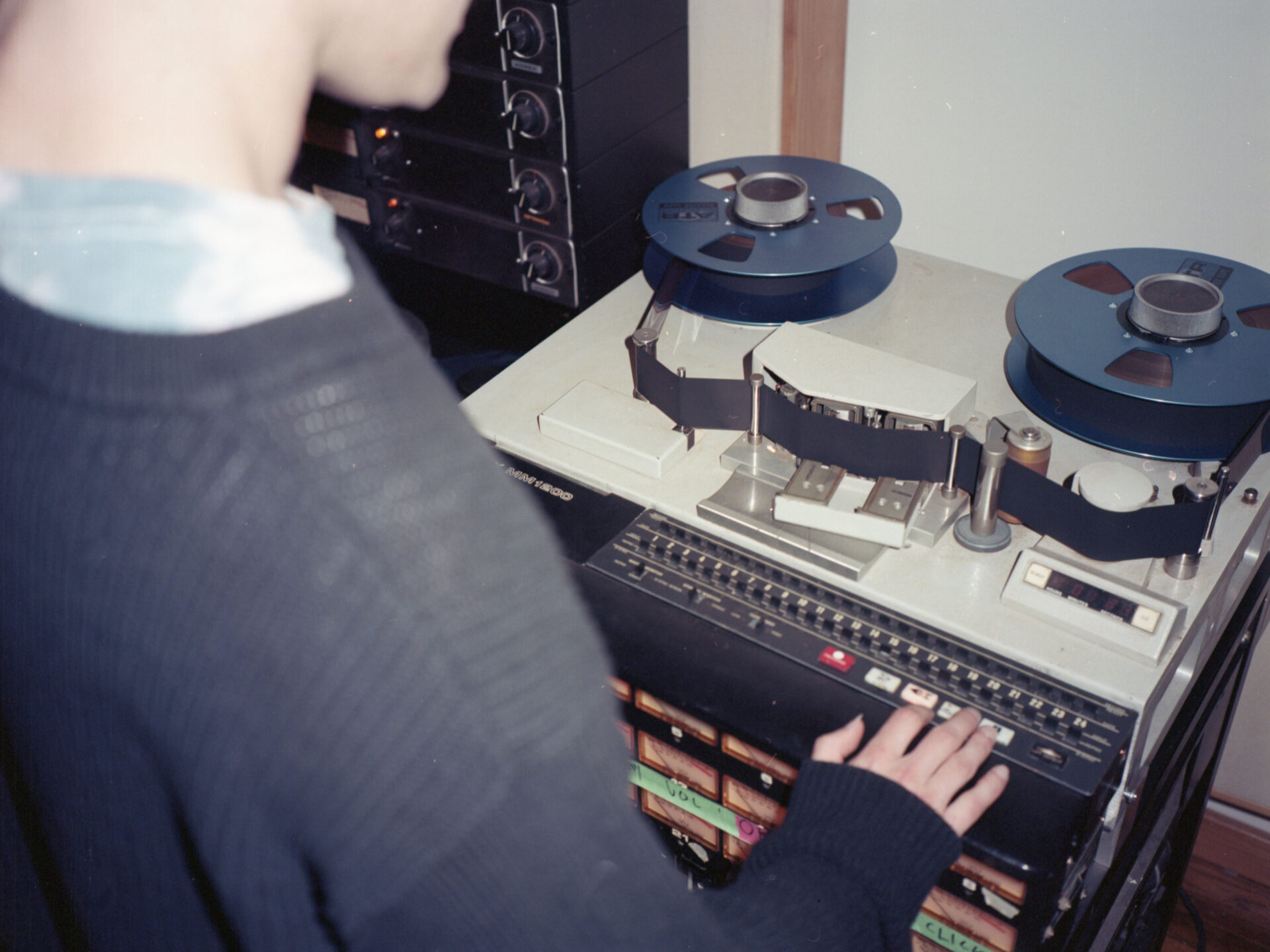
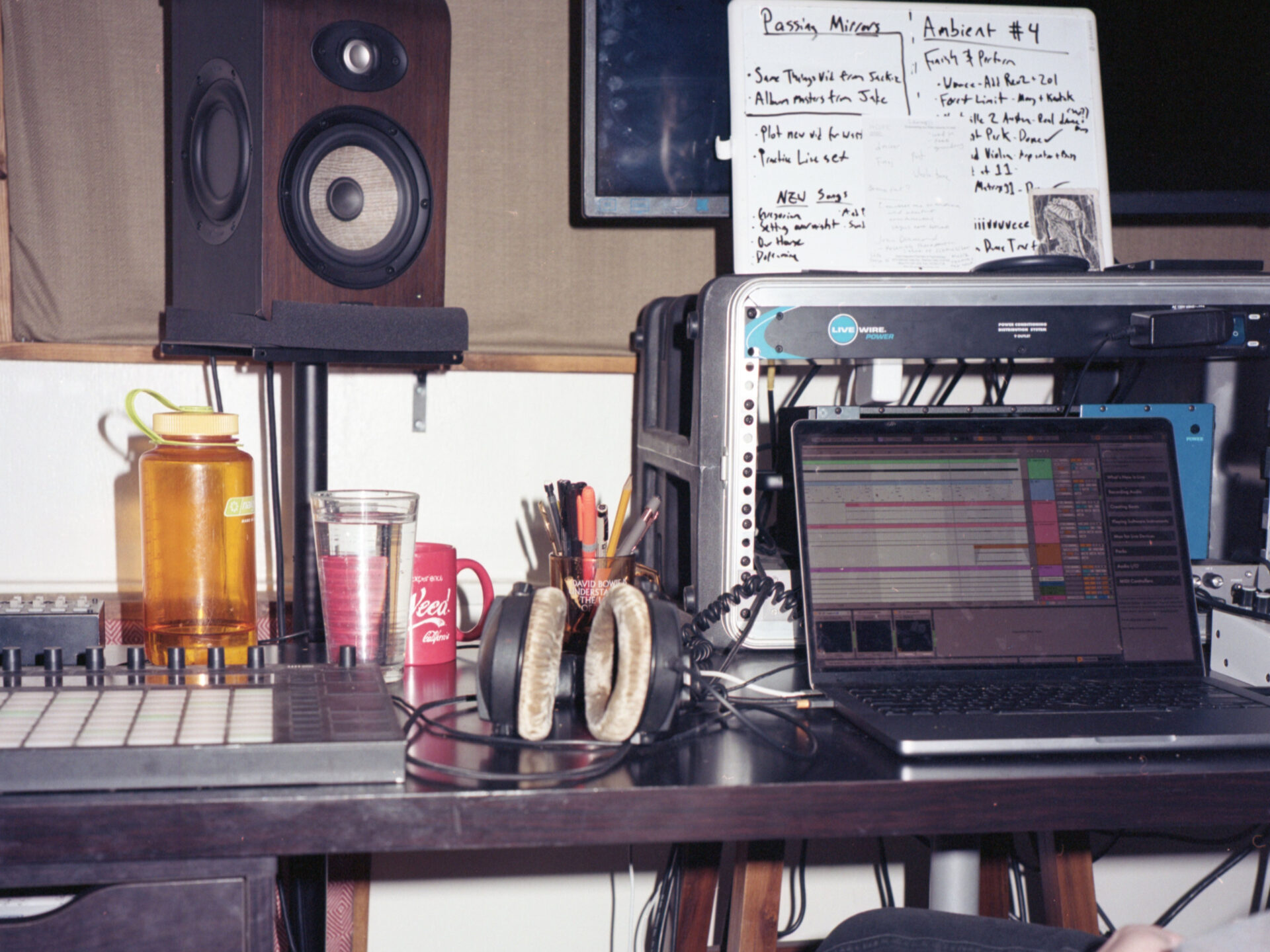
繰り返しになるけど、両親はまったく音楽を聴かなかった。だから、その当時の自分にとっての音楽は、合唱以外だと、任天堂のゲーム・ミュージックとテレビのコマーシャル、姉が聴いていたBlink 182 (ブリンク 182)くらいだった。
音楽が特別な意味を持つようになったのは、家の棚に眠っていた父親が友人から誕生日プレゼントで貰った、未開封のThe Beatles (ザ ビートルズ)の『White Album』を見つけたからだった。父親が開封すらしていなかったことに興味を抱き、CDを取り出して再生ボタンを押した。次の瞬間、流れ出したのはサンプリングされたジェット機の音。これまで体験したことのない音に驚嘆しながら、アルバム全体を聴き終えた僕は、一つの世界を作り上げてしまう音楽のパワーに圧倒され震えていた。
Growing up in a non-musical household, the only music I really listened to—aside from choral pieces—was Nintendo game soundtracks, TV commercials, and Blink-182, which my sister played. But my perspective on music completely changed one day after an unexpected discovery.
I came across an unopened copy of The Beatles’ White Album sitting on a shelf at home—a birthday gift my father had received from a friend but never bothered to listen to. Curious, I popped the CD into the player and hit play. The first thing I heard was the sampled sound of a jet plane. As I made my way through the entire album, I was completely absorbed, amazed by sounds I had never experienced before. By the time it ended, I was overwhelmed by the sheer power of music to build an entire world within itself. That moment sparked a deep curiosity in me, driving me to explore the details behind The Beatles’ recordings.
音楽のパワーに取り憑かれ、The Beatlesにまつわるレコーディングの詳細を調べるようになっていた僕が、クリエイティブを形にし始めたのは高校生のころ。大量の音楽をディグり、Kanye West(カニエ・ウェスト)のようなクールな曲を見つけると、DTM(デスクトップミュージック)を駆使して、その曲を自分でどれだけ再現できるか試すようになっていた。
大学受験を控えた頃、音楽への情熱を胸に覚悟を決め、両親に音楽の道へ進みたい想いを伝えた。だけど、その言葉に対する返答は猛烈な反対の声だった。本当に失望した。それで結局、僕はメディア論を学ぶため、普通の大学に進学することになった。
I really started shaping my creativity in high school. I became a total music nerd, digging through tons of music. When I found something cool—like a Kanye West track—I’d experiment with my computer to see if I could recreate it myself.
I didn’t have a clear vision for my future in music, but I knew I loved it. My parents, however, were completely against the idea. And honestly, I understood why. To them, the entertainment industry was this distant, Hollywood-like dream that had nothing to do with the reality of a stable, middle-class life. In the end, I went to a regular university and studied media theory instead.
もしかすると、僕の成功は、エンジニアになれたことよりも、社会が描く枠に収まることだけが成功じゃないと気付けたことかもしれない。自分が好きでやりたいことを誰かに反対されている人って世の中にたくさんいる。でも誰かを喜ばせるために、社会で普通とされることを頑張って続けることが、どれだけ自分のためになるのか考えてみて欲しい。少なくとも、自分の場合は、どれほどお金と時間を掛けても、どれも苦手なままで、どれも継続できなかった。
大学でメディア論を学び始めたころ、同い年の友人がテレビ関係の仕事を始めた。彼が実際の仕事として給料を貰いながら番組を作り上げてるあいだ、僕は大学の授業で彼が担当している番組の映像を編集する宿題をしてた。興味のないことはとことん出来ない僕だけど、自分が好きなことだったら寝る間も惜しんで出来る。ある日、ふとそれに気がつくと、あらゆることが馬鹿らしく思えてきて、両親に何も言わずに大学を中退して、いつの間にかLAに降り立ってた。
Looking back, I don’t think my success was about becoming an engineer or anything specific. It was about breaking free from the rigid expectations of what a “normal” life should look like. So many people want to follow their passions but get pressured into something else. But before sacrificing your dreams just to please others, ask yourself: how much does it really benefit you to stick to what’s considered “normal”? In my case, no matter how much time or money I spent, I was never great at any of the conventional paths laid out for me—and I couldn’t keep forcing myself to follow them.
Around the same time I started studying media theory in college, a friend of mine landed a job in television. While he was getting paid to produce TV programs, I was sitting in class editing footage for homework—essentially doing the same thing for free. Then one day, it hit me: I can’t force myself to do something I’m not passionate about, but if I love something, I’ll pour every waking hour into it without hesitation.
With that realization, I dropped out of college without telling my parents and found myself in L.A.
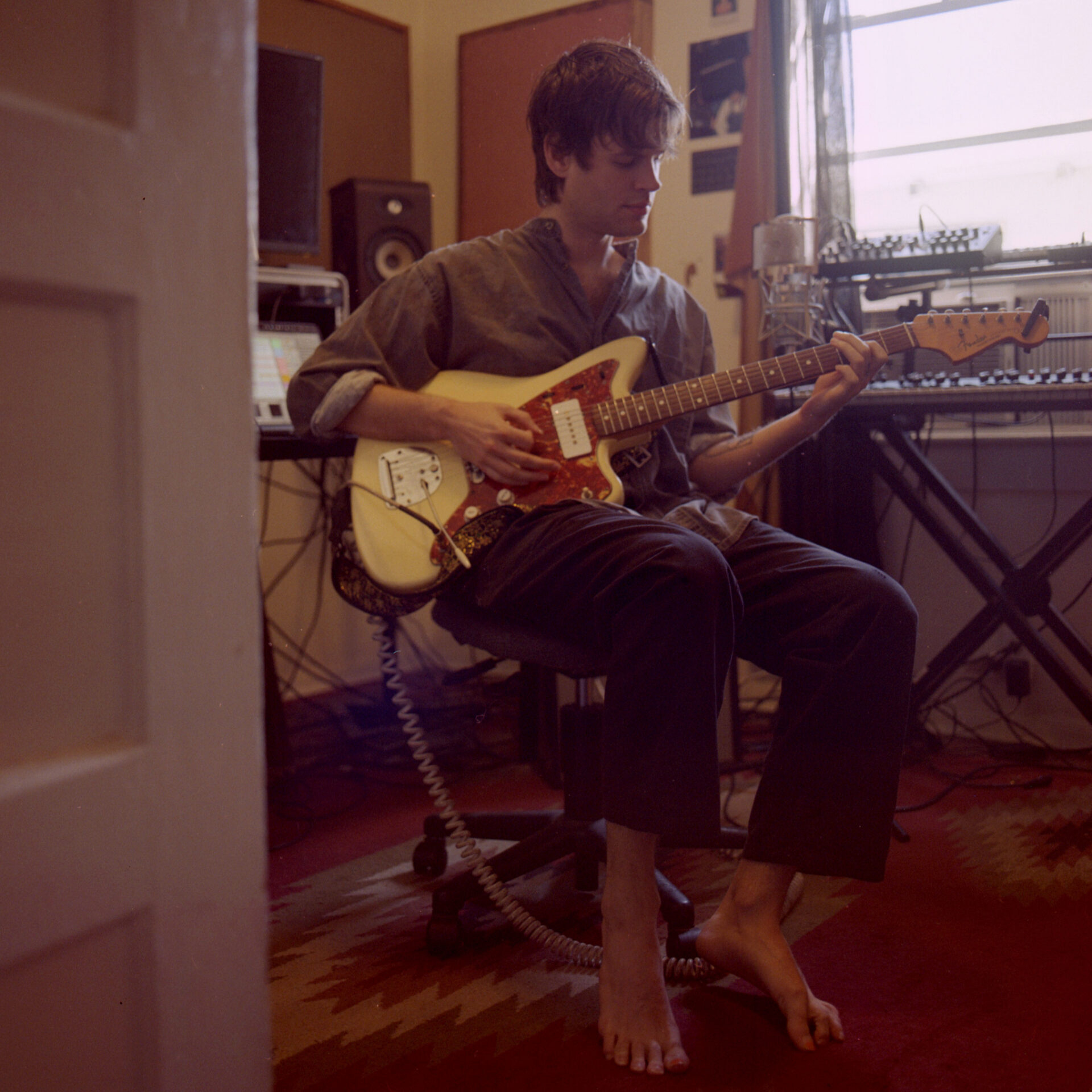
環境の変化が人生を一変させるわけじゃない。でも環境を変えたことで、大きな気づきを与えてくれる人たちとの予想外な出会いがあるかもしれない。
LAに移り住んだ僕は、音楽の道に進む機会を求めながらも、ただアルバイトに追われる日々を過ごしてた。変化を望む気持ちがますます強くなるなかで、ある日、思い切ってバイト先の向かいにあるレコード屋の親しい店主に、自分の夢や興味を打ち明けてみると、彼は驚くほど積極的にサポートしてくれた。スタジオや音楽関係者の名前をメモ用紙に書き出した彼は、「とりあえず連絡してみな」と勧めてくれた。
Changing your environment doesn’t automatically change your life. But sometimes, a new place leads to unexpected encounters—ones that can shift your path in ways you never imagined.
When I arrived in L.A., I was working part-time at a coffee shop, completely burned out. I agonized over whether I’d ever get the chance to pursue music. One day, I opened up to the owner of the record shop across the street—who had become a good friend—about my dream of working in music and my interest in engineering. He listened, then grabbed a piece of paper and started jotting down names of studios and people in the industry, telling me I should reach out.
その晩、早速メモに書かれた場所や人物にメールを送ってみた。まさか返事が来るなんて思ってもみなかったから、そのあと本当に返事が返ってきて驚いた。その結果、小さいレコーディング・スタジオと、Eliott Smith(エリオット・スミス)の『XO』を担当した、エンジニアのRob Schnapf(ロブ・シュナフ)のもとでインターンをさせて貰えることになった。
自分一人で解決できないことを誰かに相談していいんだって気づきは、凄く意味のある気づきだった。それと、既に成功している人たちが口を揃えて「ただこれをやるだけだよ」って教えてくれたことのほとんどが、技術的なことじゃなかったことも、エンジニアへの道をより現実的なものにしてくれたと思う。例えば、機材の使い方やレコーディングの仕方は、自分で調べて学ぶことが出来るし、お金をかけずに自宅である程度のレコーディング環境を整えることが出来るとか。
どうやってStones Throwのエンジニアになったって? 彼らと交友のあった友人に相談して、その友人の紹介文をもとに、彼らにメールを送っただけだよ。
That night, I sent emails to everyone on the list. I wasn’t expecting a response—but to my surprise, I got one. That’s how I landed an internship at a small recording studio, working alongside Rob Schnapf, the engineer behind Elliott Smith’s XO.
One of the most valuable lessons I learned was that I didn’t have to figure everything out on my own—I could talk to people who had already been there. And the advice they gave me was rarely technical. Instead, it was things like “just do this” or “just reach out.” That made the idea of becoming an engineer feel much more realistic. I realized I could learn how to use equipment, record properly, and even set up a decent recording environment at home without spending a fortune.
So, how did I become an engineer for Stones Throw? Simple—I talked to a friend who knew them. Based on his introduction, I sent an email. That’s it.
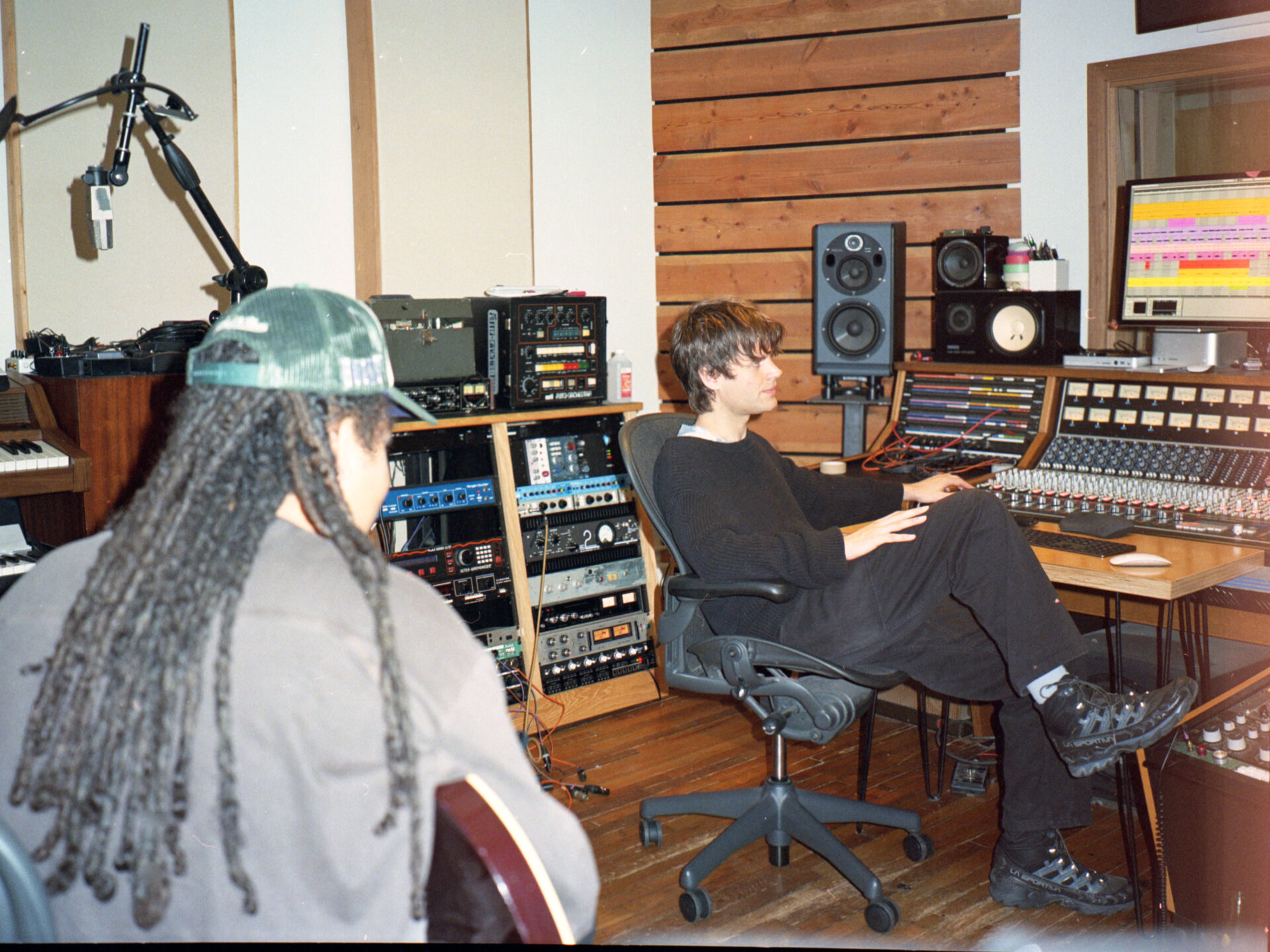
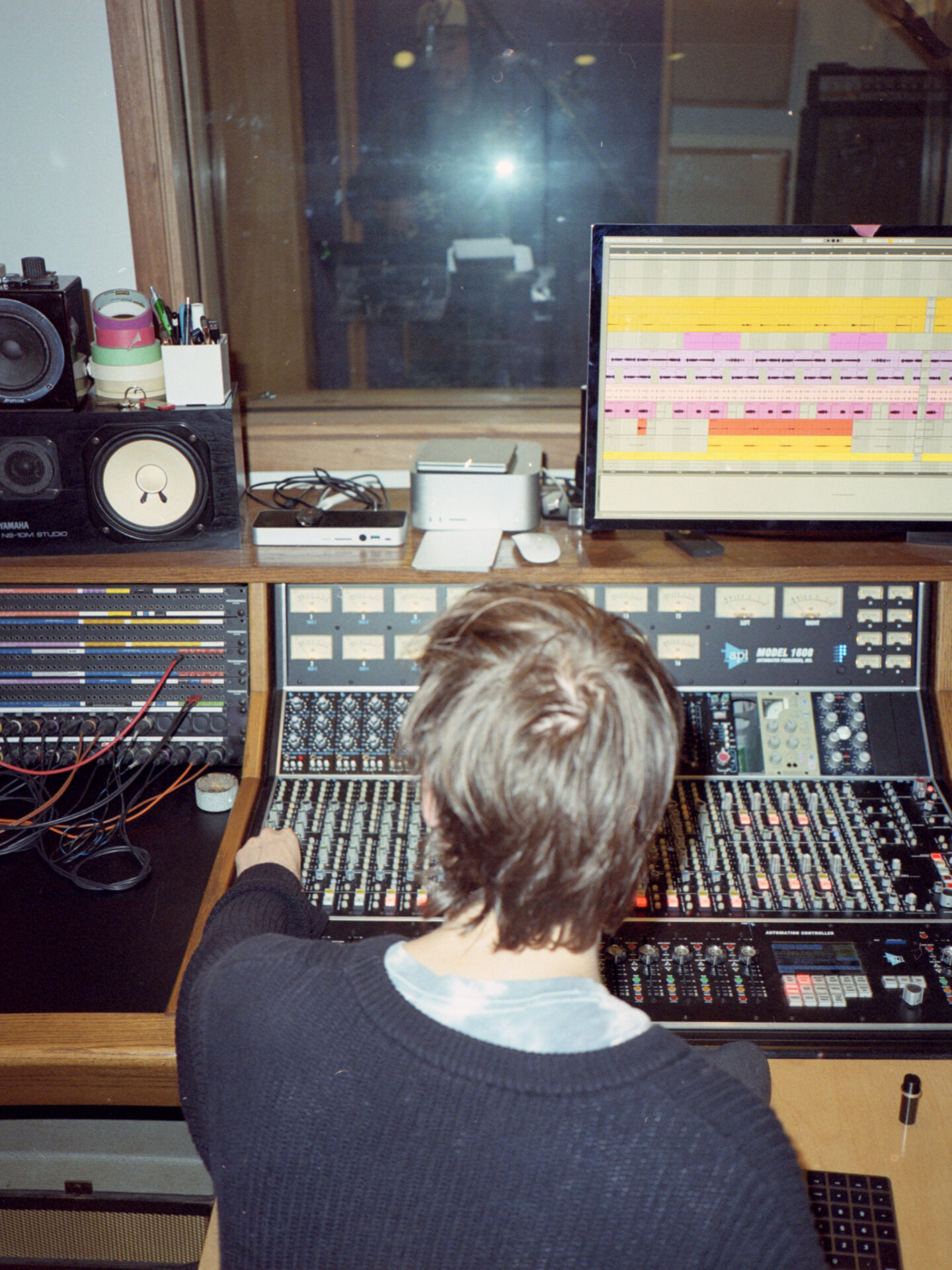
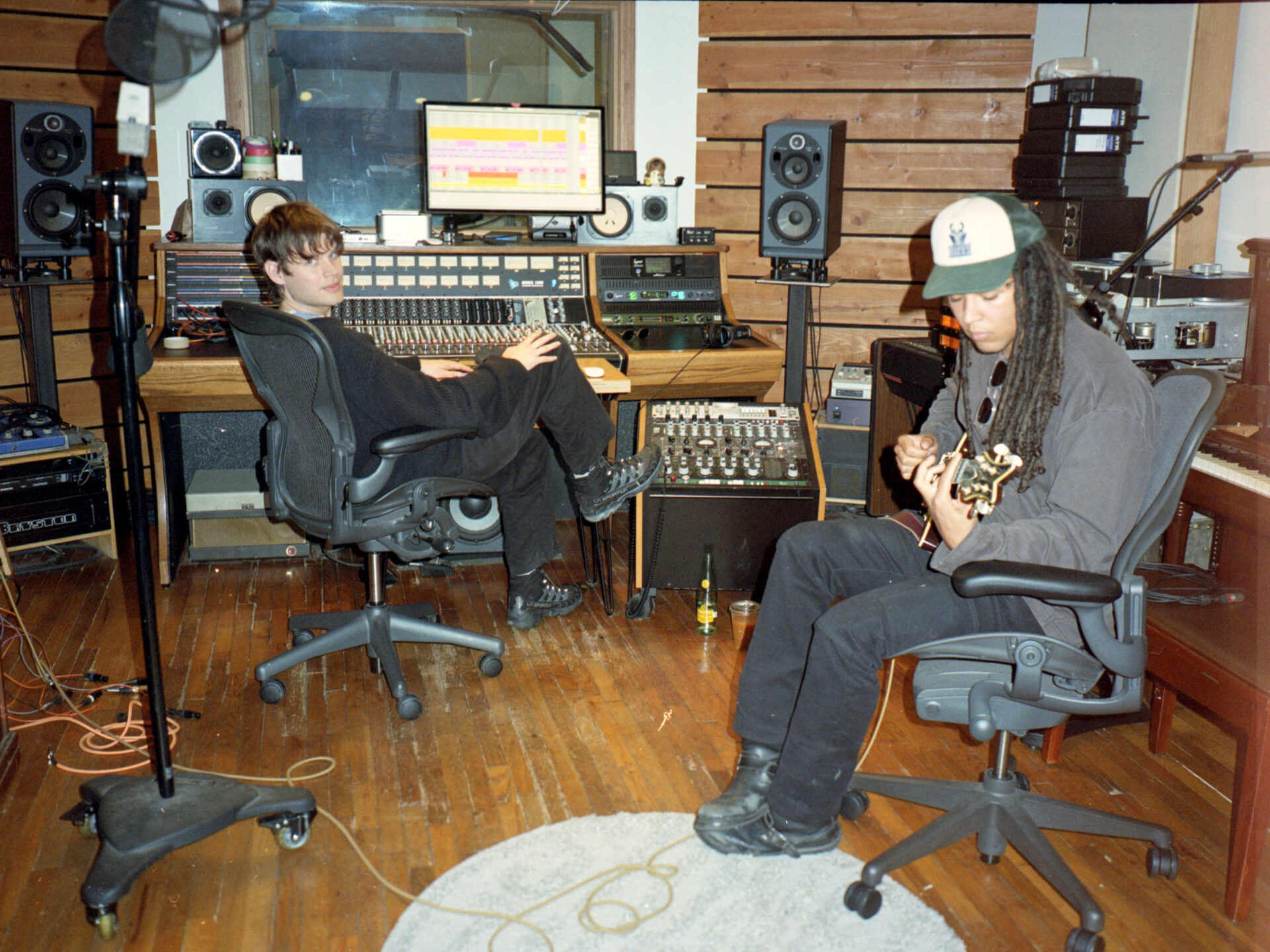
だけど、そこから他人に認められるプロになるには、もちろん自らの努力も欠かすことはできない。インターンではセオリーや経験を補えなかったから、Stones Throwで働き始めた当初は、新たな仕事が舞い込めば全てにイエスって答えるしかなかった。全てが手探りな状態だったし、失敗することが怖くて、仕事に行くのも億劫だった。
でも、自分がこのポジションに相応わしい存在になるには、知識を得ることが不可欠だって理解してた。だからセッションが決まれば、YouTubeにアップされてるプリセットやレコーディングに関するチュートリアルの動画を観れるだけ観て、吸収できることは全て吸収しようと努力した。
そうやって、少しづつ経験を重ねて、色んな人たちと関わることで、自分が尊敬するエンジニアたちがルールや理論通りにサウンドエンジニアリングをしてないって気付かされた。
だとしたら 、良い音を聴き分けられる耳こそ重要なんじゃないかって思って、そのために、音を求めて、インターネットやレコードショップやライヴハウスをひたすら往復する日々を送った。
分からないことは聞いて、調べて、自分で試すなかでたくさん失敗して、そうやって続けてきたエンジニアの仕事を始めて、もう6年が経つ。
Of course, from that point on, it was all on me. Getting an opportunity is one thing, but proving yourself is another. Internships don’t replace real experience, so when I first started at Stones Throw, I was terrified. Everything was hands-on, and I felt completely out of my depth. But I knew I couldn’t keep my spot without learning fast, so I said yes to every job that came my way. Before every session, I’d watch YouTube tutorials on presets and recording techniques, cramming as much information as I could before heading out the door.
As I gained more experience and met more people, I realized something: the engineers I admired weren’t strictly following rules or theory. They weren’t obsessing over textbooks or step-by-step guides. What set them apart was their ear—their ability to recognize a good sound from a bad one. That realization sent me back to the internet and back to record stores, searching for the kind of sounds that had moved me when I first heard The Beatles.
I kept asking questions, researching what I didn’t understand, and making plenty of mistakes along the way. Now, six years later, I’m still learning—but I’m also working as a full-time engineer.
これは、何かを始めてみたい人たちに、きっかけやモチベーションを共有する連載なんだよね? 僕が言いたいのは、信頼できる人たちからのアドバイスと、自分自身の声を聴き分けられる耳を持って欲しいってこと。たくさん悩みながら、でも悩むだけじゃなくて、行動してみて欲しい。恐ろしい挑戦の根底にあるのは、君が本当に愛しているものじゃない?
Edit: Yuki Kikuchi
Translate : Hikari Hakozaki
Photo: Robb Klassen
This series of articles is meant to inspire people who want to start something new, right? What I really want to say is this: it’s not just about developing an ear for good music—it’s about learning to listen to the advice that truly helps you and the voice inside that knows what you want, while filtering out the noise. And most importantly, I want you to take action. You can think hard, but don’t stop there. Because at the root of every challenge that scares you is something you truly love.
Edit: Yuki Kikuchi
Translate : Hikari Hakozaki
Photo: Robb Klassen
Release Information
Release Information
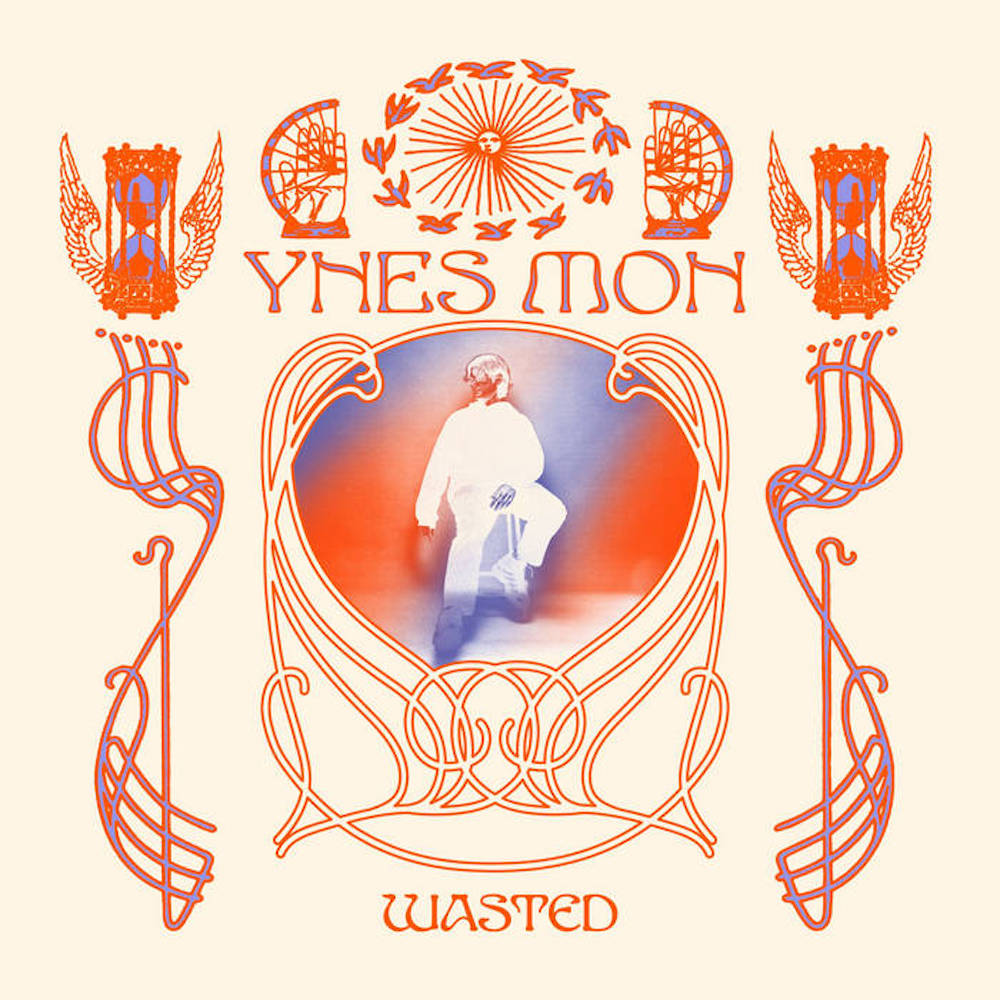
Collin Davisの音楽プロジェクトYnes Monの新曲「Wasted」「Same Things」が2024年7月19日にリリースされた。
年内に〈Day End Records〉からニューアルバムをリリース予定。
アーティスト名:Ynes Mon
タイトル:Wasted
レーベル:Day End Records
配信開始日:2024年7月19日
配信リンク:https://dayend.ffm.to/be7eevj
〈トラックリスト〉
1. Wasted
2. Same Things
Collin Davis’s music project Ynes Mon released the new tracks “Wasted” and “Same Things” on July 19, 2024.
Artist:Ynes Mon
Title:Wasted
Label:Day End Records
Release Date:July 19, 2024
Streaming Link:https://dayend.ffm.to/be7eevj
<Track List>
1. Wasted
2. Same Things

